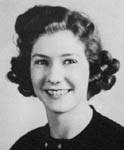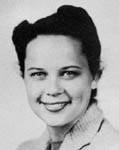| |
|
|
| |
|
|
| |
Abercrombie, Clotiele B.
Abercrombie, Loyd D. Sr.
Abercrombie, Virgie Blalock
Armstrong, John
Bain, Pamela
Bento, Lola
Box, Dorothy Womack
Campbell, Lu
Holbert, Pearl Shaw
Challis, James E. "Ike"
Cole, Beaver
Coleman, Howard
Cronkite, Walter
Degnan, Julie E.
Duch, Greg
Erikson, Charles Henry
Ezell, Alta Reigh
Farrell, Hal
Gregory, Doug
Grenley, Martha Rogers
Grigg, Horace
Grigg, William N.
Hannon, Bill
Harris, Howard
Johnson, Joe and Bobby
Kronjaeger, Jim
Lester, George
Lester, George - Playmates
Lummus, Darlene
Lummus, Don
Martinez, Nelma Cummins
Mayhew, Bessie
McAllister, Mark
Meissner, J. Raymond
Moody, Mildred
Motley, Pete
Nelson, Ron
Plant, Sally
Platton, Mike
Read, Osceola Jefferson
Robertson, William Judson
Robinson, Jimmie Jordan
Mack Thornton Rogers
Ryan, Terri Jo
Seacrist, Debra
Shaw, Marjorie
Stanley, Glenda G.
Taylor, Bob
Taylor, Jim
Thompson, Bill
Vail, Mary Lechtenberg
Vento, Eduardo
Vinson, Allen Earl
Vinson, Melvin
Williams, William B. |
|
| |
|
|
|
|
|
|
|
|
|
|
|
| |
|
|
| |
THE PHOENIX BIRD OF TEXAS
by George Lester
TexasEscapes.com
Wednesday, March 7, 2004 |
|
| |
|
|
| |
Recently I took a trip to New London, Texas, the
site of one of the most horrific disasters in
history, to visit the museum. In 1937, the
school was using natural gas from the oil fields
surrounding the town. In its original state the
vapor had no odor at all. When a leak occurred,
no one knew about it until it was too late. Just
before school let out for the day and parents
were lined up to take the children home, the
building exploded. Over three hundred children
and adults died that day, and hundreds more were
injured. I learned that our museum guide was a
survivor of that fateful event. As she talked to
us, my memory went back many years.
I was a member of the Union Grove High School
band that made a trip to New London. We were
there to participate in a band festival being
held at their football stadium. As we were
waiting in the parking lot for our turn to enter
the stadium, the New London band marched up
beside us and came to a halt. On the trip over,
all the talk on the bus centered on the
explosion and the horror it wreaked on the
community. Each student had a story to relate.
Not only were we awestruck by the magnitude of
our historical journey, now we were standing
right next to the New London High School band.
Trying our best not to stare, we could not help
but study the individuals and wonder what each
had experienced that terrible day. As we scanned
the band members, we noticed some had evidence
of severe burns on their visible skin, others
had deep scars showing, and some had limbs or
digits missing. The compassion that flowed out
to them was tangible. The picture lingered with
us long after the band festival was over. Until
then we had only read about the explosion or
heard it chronicled by word of mouth numerous
times. That day it became real.
The New London School sustained almost total
destruction that horrible day. The events
immediately after were described later in the
newspapers. In a matter of hours, clean-up crews
came from everywhere to start clearing out the
debris and to search for survivors and, sadly,
the ones who didn't survive. Before midnight the
area had been virtually transformed. Hundreds of
trucks had hauled off the rubble, and now very
little evidence of the detonation remained.
While they still were still grieving, the
citizens pulled together and rebuilt the school
at a seemingly impossible pace. Like the phoenix
bird, life had sprung from the ashes once again.
For the young, time seems to move at a different
pace. That day, as our band observed our
counterparts standing next to us, I thought of
the explosion as being long, long ago in the
distant past. While reminiscing at the museum,
it dawned on me. Less than three years had
separated the two events.
© George Lester
Reprinted by permission |
|
| |
|
|
| |
|
|
|
|
|
|
|
George Lester - PLAYMATES |
|
|
| |
|
|
| |
Kilgore, Texas during the oil boom was a prime
example of chaos. Oil wells, as close together
as hair on a dog's back, appeared in every
direction. The muddy streets were clogged with
stuck vehicles of every kind. Tent cities sprang
up right next to old established neighborhoods,
often causing social conflict. I witnessed such
an incident as a child. My mother and I were
visiting a family friend, whose house overlooked
a sea of tents just across the street, in
Kilgore. As the grownups socialized, I ventured
into the forbidden territory of canvas houses.
It didn't take long for me to find a friendly
family with a boy and a girl about my age. We
hit it off immediately, and the time seemed to
fly by. Too soon, I heard my mother calling me
for lunch. I waved a reluctant goodbye to my
newfound friends and told them I would be back I
bolted down my food and dashed out the door to
continue my interrupted play. Our host lady
stopped me at the door, saying, "You shouldn't
be mingling with those shanty town kids. Find
some nice children to play with." At my tender
age I had no idea what she meant by "nice
children." I thought these two were just great,
and I was very disappointed to be denied their
company.
I sat on her front porch, staring over into
their domain, feeling sad, and wishing I could
rejoin them. After awhile they came walking down
the street in front of the house, carrying an
empty can. "We're going to the store. Come go
with us," they invited. I sprang up and started
to join them, and then I remembered what I had
been told by the grownup. I wish I could
remember exactly what kind of excuse I gave
them.
After my mother and I returned home, we received
a letter from our Kilgore host. I'll never
forget her words. "Remember those children Eddie
played with while you were here? Well, their
mother sent them to the store to buy some
kerosene, and they must have mistakenly asked
for gasoline. When the mother tried to start a
fire in the cook stove, it exploded, and all
three of them were burned to death."
I hope that, when I declined their invitation to
play with them, I chose words that were discreet
and kind. I would give anything to know for
sure.
© George Lester
Reprinted by permission |
|
| |
|
|
| |
|
|
|
|
|
|
|
| |
|
|
| |
My mother witnessed the explosion from about 100
feet away. |
|
| |
|
|
| |
Genevieve Langham was a primary school music
teacher, 20 years old, in her first year of
teaching. She and another teacher, Myrtle
Braswell, were walking toward the main building
a few minutes after three. They were headed for
the PTA meeting, apparently unaware that the
meeting was not being held in the usual location
- the high school auditorium - but rather in the
gymnasium behind the main building. When they
neared the building "Myrt" realized she forgot
her coat and went back for it while my mother
stood and waited. (Myrt only wanted the
cigarettes in the pocket, my mother said later.
They were roommates and best friends.) My mother
was not injured when the building blew, but she
has never been able to describe her immediate
impressions.
She was the regular organist at the New London
Methodist Church, and played for thirteen
consecutive funerals on March 20. Many years
later she gave me her autographed copy of
"Living Lessons of the New London Explosion"
which was written by the church pastor R.L.
Jackson.
She continued to teach at New London after the
explosion and met Bill McAllister, a chemical
engineer working for Hanlon Pipe Line Company,
in 1940. They married in 1941 and lived in
Overton. I was born in 1944 in Dayton, Ohio at
Wright Patterson Field where my father was a
test pilot. We lived in New London after the war
for a couple of years, but I have no memory of
those times. My boyhood was spent in an oil camp
northeast of Gladewater, where my father was
appointed superintendent of a gasoline plant in
1947. So I'm definitely an East Texas boy. |
|
| |
|
|
| |
| |
 |
|
 |
|
| |
Genevieve Langham |
|
Myrtle Braswell |
|
|
|
| |
|
|
|
|
|
|
|